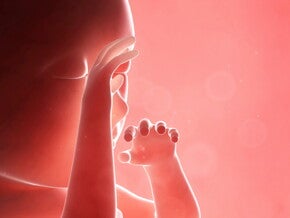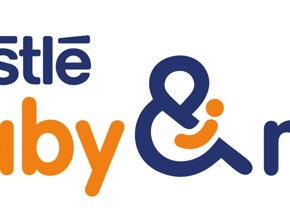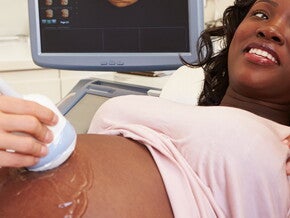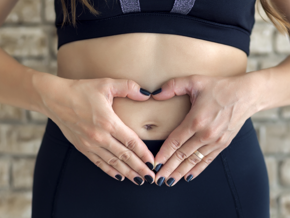
Second stage of labour
Second stage of labour
This stage begins when the cervix reaches complete dilation and effacement, and it ends with the birth of the baby.
Cervical effacement and complete dilation at second stage of labour.
The contractions are less intense, last 60–75 seconds and are about 3–5 minutes apart. You may feel an urge to bear down at the peak of these contractions.
This stage may last from 10 minutes to 2 hours. Your mood usually improves. You may become more talkative and co-operative. It is usually a tremendous relief to work with the contractions and to push.
As the baby descends you may feel a burning, stretching sensation with a large amount of pressure. Some women experience pain with pushing, but this is usually associated with increased tension, an unrelaxed pelvic floor, unusual presentation of the baby, the position of the mother or a large baby.
Your birth attendant will tell you exactly what to do. Listen, co-operate and try to relax and enjoy the birth of your baby.

Cutting the cord
The cord is usually cut shortly after birth by clamping it in two places and cutting between the clamps.
Note to support person: Second stage
- Put your arms around her shoulders.
- Give her your strength through closeness.
- Help her to relax completely between contractions.
Sharing in the birth of your child is a perfect beginning to your future years together as a family
Related articles


Labour
As labour starts, a mother’s mood changes and she becomes less aware of what is happening outside her body, and more aware of what is happening inside her body.
5 mins to read

Nutrition during pregnancy
By taking responsibility for your body, you can maximise your level of wellbeing and enjoy good health.
Good nutrition is of the utmost importance during your pregnancy
5 mins to read

The third stage of labour
This stage lasts from the birth of the baby until the placenta is delivered, usually from 5–20 minutes.
5 mins to read

Personal considerations
You may need to consider some personal issues before you become pregnant.
1 min to read

Checklist - maternity ward suitcase
*Check whether the maternity ward has a list of the items you will need.
Items for hospital stay
5 mins to read

Medication for pain relief
In a normal, uncomplicated labour and delivery, the use of medication is not always necessary. Your own resources are often enough.
5 mins to read



Signs of labour
The following signs of labour may occur in any order.
1. Progressive contractions
5 mins to read


Unexpected outcomes
All parents worry about the possibility of complications such as prematurity, abnormality, stillbirth and neonatal death.
5 mins to read

Tips to budget for baby
There are many factors to consider before dedicating yourself to raising and budgeting a child for the next 18 years or more.
5 mins to read

First visit
A detailed medical history, of you and your partner, will be recorded at your first prenatal visit.
2 mins to read



Multiple births
Regular prenatal care is most important if you are carrying more than one baby, as the risk to you and your babies is higher.
1 min to read

Prenatal Care
Discuss questions or concerns you or your partner may have with your caregiver at any stage of your pregnancy.
5 mins to read

The First Month of Pregnancy
Your pregnancy: weeks 1-4 – the start of your first trimester. The first signs of pregnancy may be very visible… or not at all.
2 mins to read